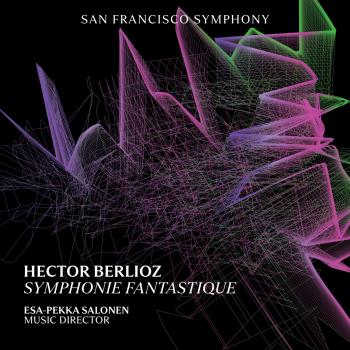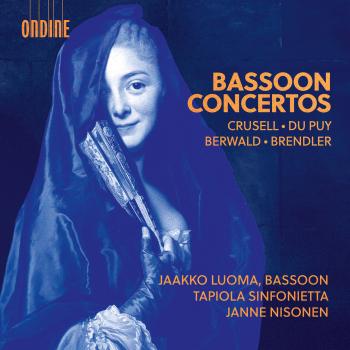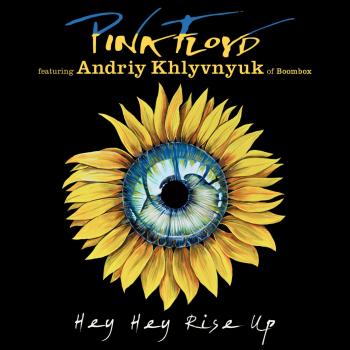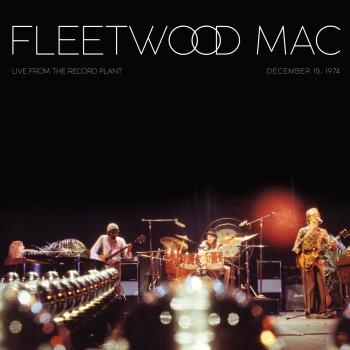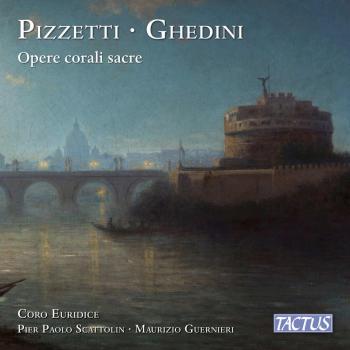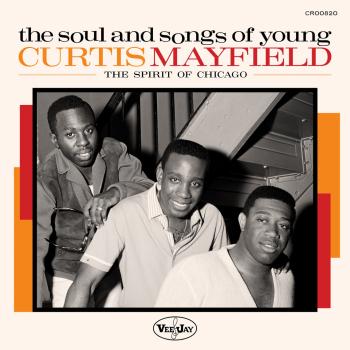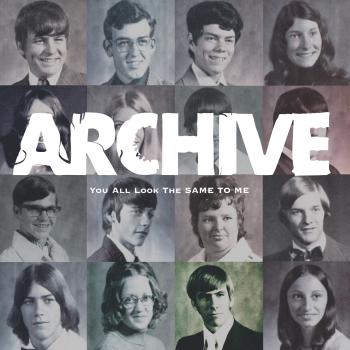Tedi Papavrami & Nelson Goerner
Biography Tedi Papavrami & Nelson Goerner
Tedi Papavrami
When Tedi Papavrami arrived in France at a young age, he was faced with a country and a culture that were entirely foreign to him. Moved out of natural curiosity paired with a great yearning to master the French language – and also to overcome initial loneliness – he plunged into reading Stendhal, Proust, Flaubert, Dostoevsky, Chekhov, Kafka... all in French.
What makes Tedi a unique and rare musician is his curiosity for what lies beyond borders. Along with his high artistic and intellectual standards, it helps him bridge the immense gap between his original background and new horizons. Therefore, when translator Jusuf Vrioni passed away in 2000, it came as no surprise that Tedi Papavrami took up the task of translating into French the works of Albanian author Ismail Kadare, whom he had known as a child. That incursion into literature also provided him with “a means of leading a professional existence apart from the violin”. In 2013 he continued in that vein by publishing an account of his own youth, Fugue pour Violon Seul, in French. Unanimously hailed by the press, the book recounts his trajectory as a child prodigy in Albania and his passage to the West and to freedom. Moreover, in 2003, when actress Jeanne Moreau met Tedi in a television programme, she quickly recruited him to play Danceny, the violinist, alongside Catherine Deneuve, Rupert Everett and Nastasja Kinski in Josée Dayan's TV mini-series adaptation of Choderlos de Laclos’s Dangerous Liaisons.
Such a wide range of activities and interests would probably not have been possible without a certain musical precocity coupled with long hours of practice from a very early age. The violin was always part of Tedi’s life. He was introduced to it at the age of five by his father, a brilliant teacher whose long experience in musical instruction had led him to develop a method for training small children. Tedi progressed very rapidly, and within three years he was performing Sarasate's Airs Bohémiens with the Tirana Philharmonic Orchestra. At the age of eleven he tackled Paganini's Concerto No. 1 with the fearsome cadenza by Emile Sauret.
The year was 1982. Albania had isolated itself from the rest of the world for decades. French flautist Alain Marion, who had come to give a concert in Tirana, just happened to hear the child prodigy play – and promptly arranged for him to come to Paris with a bursary from the French government. Tedi went on to study with Pierre Amoyal at the Conservatoire National Supérieur de Musique and also appeared on popular TV programmes as well as giving concerts at that time.
Having reached the end of his studies by the age of fifteen, Tedi went on perfecting his instrumental and musical development on his own. The Communist regime in Albania punished those family members who had stayed behind with severe sanctions and reprisals that remained in force until the regime fell in 1991. In the meantime, Tedi and his parents had left Paris in order to avoid Albanian embassy officials who were on their tail. Friends helped them settle near Bordeaux.
Tedi Papavrami went on to win several important international prizes. In the 1990‘s he launched his career as soloist and chamber musician. Since then, he has collaborated as concerto soloist with conductors of the likes of Kurt Sanderling, Antonio Pappano, Armin Jordan, Emmanuel Krivine, Manfred Honeck, François-Xavier Roth, Thierry Fischer, Gilbert Varga and M. Aeschenbacher. He was also a member of the Schumann Quartet (with piano) for nine years. He has performed in recitals with chamber music partners such as Philippe Bianconi, Nelson Goerner, Maria Joao Pires, Martha Argerich, Gary Hofmann, Marc Coppey, Paul Meyer and Lawrence Power. Ever since 2011 he has been presenting the complete Beethoven violin sonatas and piano trios in the company of cellist Xavier Phillips and pianist François Frédéric Guy (with whom Papavrami makes frequent concert appearances).
Tedi Papavrami now lives in Geneva, Switzerland, where he was appointed violin professor at the Haute École de Musique de Genève in 2008. He plays on one of the two violins built for him by violinmaker Christian Bayon.
Nelson Goerner
has performed with many of the major orchestras including the Philharmonia Orchestra under Claus Peter Flor, the Deutsche Symphonie Orchestra of Berlin under Andrew Davis, the London Philharmonic Orchestra under Emmanuel Krivine, the Hallé Orchestra under Mark Elder, the Suisse Romande with Neemi Jarvi and Raphael Fruhbeck de Burgos, the Orchestra of the 18th Century with Frans Bruggen, the Deutsche Kammerphilharmonie with Ivor Bolton, and the NHK Symphony Orchestra of Tokyo under Fabio Luisi.
His festival appearances include the Salzburg Festival, La Roque d'Anthéron, La Grange de Meslay, Edinburgh, Schleswig-Holstein and Verbier, as well as the BBC Proms.
In the 2013-14 season, Nelson Goerner was the subject of the Artist Portrait series at the Wigmore Hall in London, where he gave four recitals exploring such diverse repertoire as Bach, Mozart, Beethoven, Brahms, Schumann, Chopin, Debussy and Bartók.
The 2016-17 season includes recitals in London, Paris, Toulouse, Brussels, Hohenems, and Portland USA, as well as concerto appearances with the Orchestre de la Suisse Romande, the Rotterdam Philharmonic, the Bilbao Symphony, and the National Orchestra of Belgium. The 2017-18 season will include recitals in Berlin, Leipzig, Amsterdam, Brussels, Bilbao, Paris and London. Mr Goerner will perform Mozart with the Orchestre de Paris, and will tour Europe and South America with the Orchestre de la Suisse Romande. The 2018-19 season will include a series of recitals on the west coast of the USA.
A keen chamber musician, Nelson Goerner has collaborated with artists such as Martha Argerich (in repertoire for two pianos), Janine Jansen, Steven Isserlis and Gary Hoffman.
Nelson Goerner has a strong connection with the Mozarteum Argentino in Buenos Aires, and a student scholarship has since led to many performances. Mr Goerner also enjoys a long association with the Chopin Institute in Warsaw, where he is a member of the artistic advisory committee. With the Institute, he recently explored the interpretation of Chopin on contemporary pianos by Pleyel and Erard dating from 1848 and 1849. These performances were recorded for the Chopin Institute's own label, with the recording of the Ballades and Nocturnes winning a Diapason d'Or.
Mr Goerner is very active in the recording studio and his discography includes recordings of Chopin, Rachmaninov, Liszt and Busoni, and a DVD of repertoire by Beethoven and Chopin in a live performance from the Verbier Festival. His Chopin recording on the Wigmore Hall Live label was instrumental Choice of the Month in BBC Music Magazine, and his recording of Debussy for the Alpha Classics label was awarded the Diapason d'Or of the Year 2013. Nelson Goerner's recording of repertoire by Schumann was BBC Music Magazine's Recording of the Month in March 2015. His most recent recording, of Beethoven's Hammerklavier Sonata Op 106, was released to great acclaim.
Born in San Pedro, Argentina, in 1969, Nelson Goerner has established himself as one of the foremost pianists of his generation. After studying in Argentina with Jorge Garrubba, Juan Carlos Arabian and Carmen Scalcione, he was awarded First Prize in the Franz Liszt Competition in Buenos Aires in 1986. This led to a scholarship to work with Maria Tipo at the Geneva Conservatoire, and in 1990 Nelson Goerner won the First Prize at the Geneva Competition.
Mr Goerner currently lives in Switzerland with his wife and young son. He is professor of piano at the High School of Music in Geneva.


